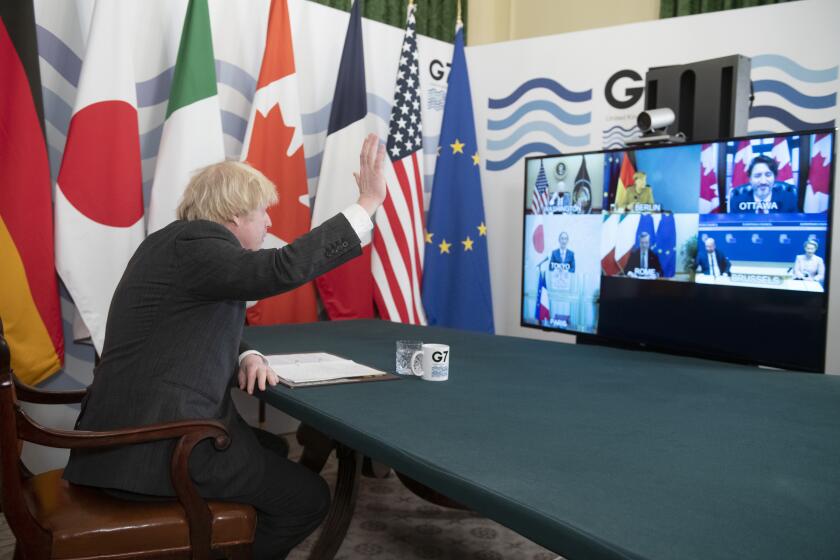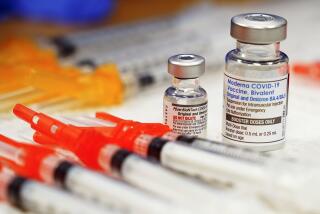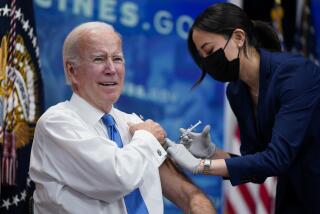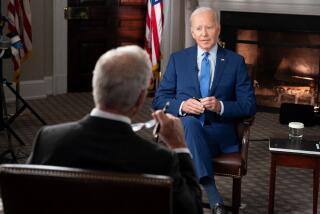Biden says U.S. will have vaccines faster, prioritizes teachers
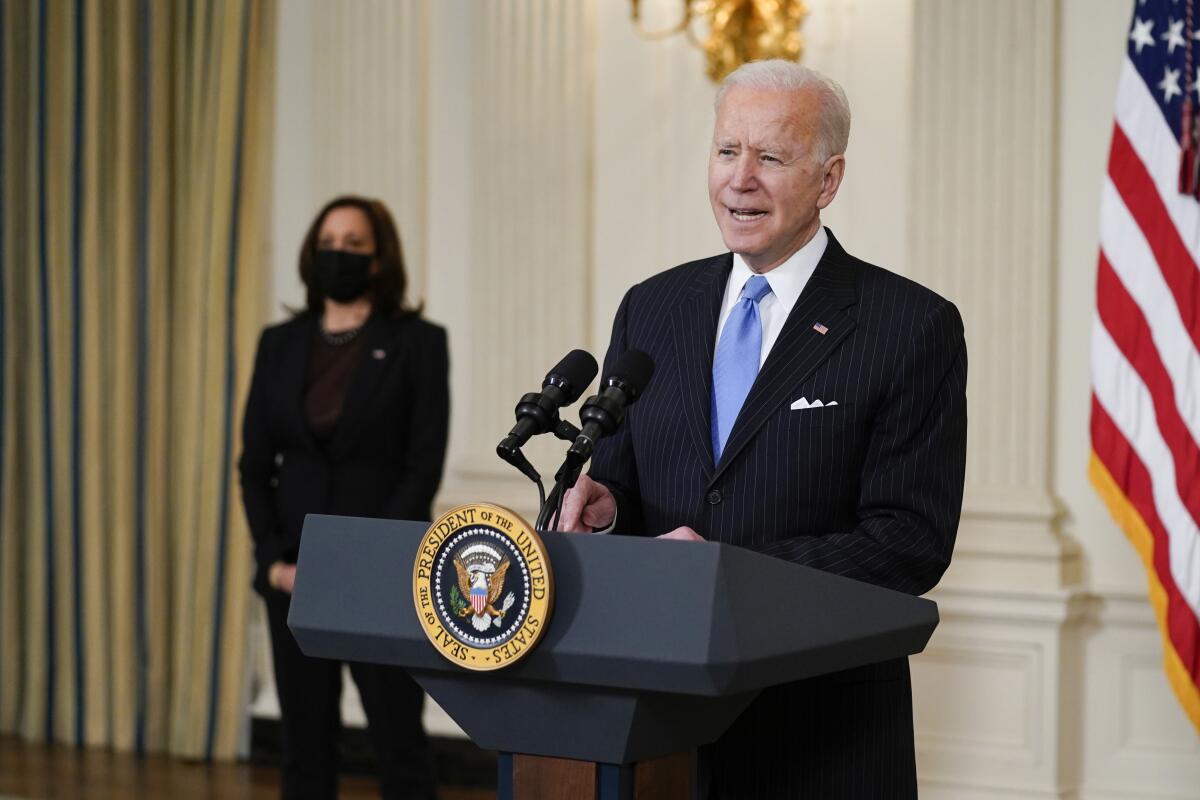
- Share via
WASHINGTON — President Biden said Tuesday that the United States would have enough COVID-19 vaccines by the end of May to inoculate every American adult, two months earlier than previously expected.
The announcement came as administration officials warned that the decline in coronavirus cases appears to be stalling. It sets up a sprint to get most Americans vaccinated against COVID-19 while the coronavirus continues to batter communities around the country.
“There is light at the end of the tunnel,” Biden said at the White House, days after a third vaccine was authorized by federal regulators. “But we cannot let our guard down or assume that victory is inevitable.”
Yet some states are doing just that, underscoring the challenge for the administration. Before Biden spoke, the governor of Texas, the nation’s second most populous state after California, announced that he was lifting anti-coronavirus restrictions. Mississippi did the same.
Although Biden previously said vaccines are not required in order to open schools, he emphasized that the increased vaccine supply would help them reopen faster by allowing states to prioritize inoculating teachers and other staff. He said every teacher and child-care worker should receive at least one shot by the end of the month.
“This is a national imperative that we get our kids back into the classroom safely and as soon as possible,” he said.
The faster vaccination timetable is partly the result of a new agreement between Johnson & Johnson, whose vaccine was authorized for inoculations over the weekend, and Merck, which also will produce that vaccine in an unusual partnership between the two pharmaceutical competitors.
“This is the type of collaboration between companies that we saw during World War II,” said Biden, who has often likened the fight against the pandemic to a wartime effort.
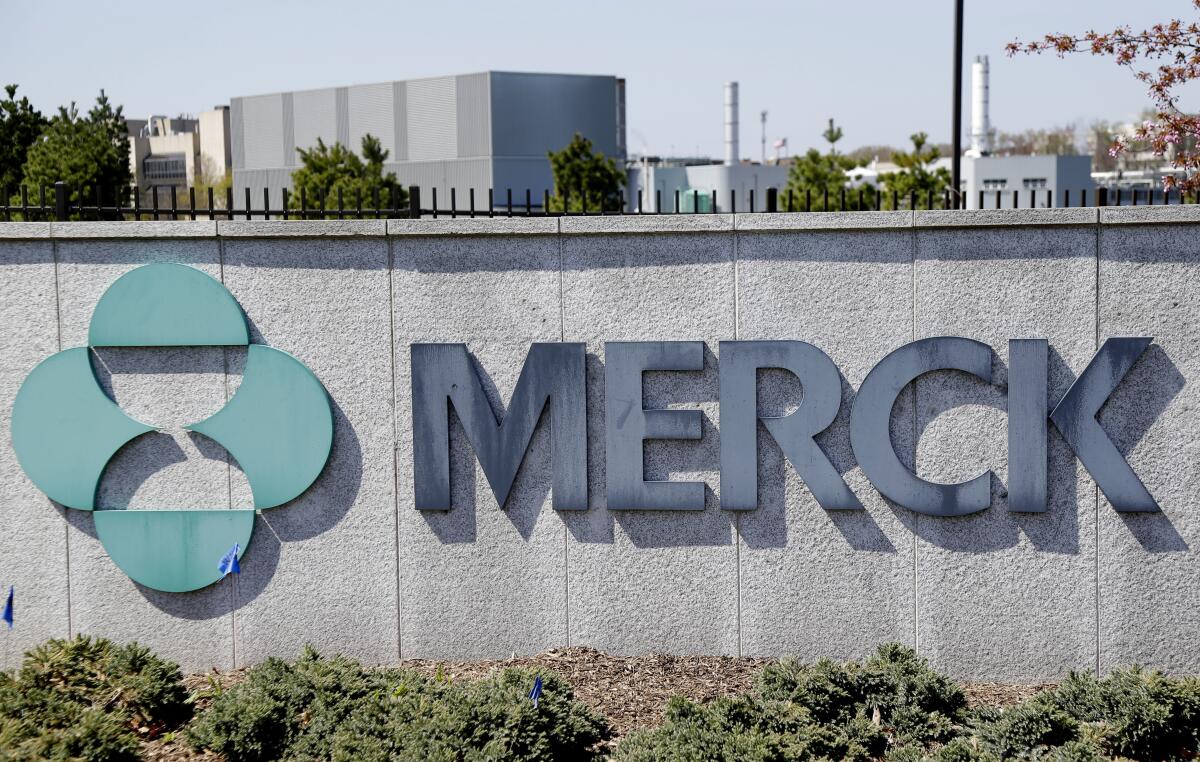
Biden said that Johnson & Johnson manufacturing plants would operate around the clock, and that he would invoke the Defense Production Act to ensure Merck was able to retrofit its facilities to produce the vaccine. He praised both companies for being “good corporate citizens.”
The increased supply of vaccines is providing a political boost for Biden as well as resources to tackle public health challenges. He’s been facing criticism from Republicans for failing to push harder to reopen schools, but some teachers unions have resisted demands to return to the classroom because of safety concerns.
Biden said teachers, school staff and child-care workers will be able to start signing up to receive vaccines at pharmacies starting next week. “Let’s treat in-person learning like the essential service that it is,” he said.
Randi Weingarten, president of the American Federation of Teachers, welcomed the announcement. “What a tremendous relief to have a president who is meeting this moment of crisis,” she said. “Vaccinations are a key ingredient to reopening schools safely.”
California has already given teachers priority to receive vaccines, and Gov. Gavin Newsom committed to making at least 75,000 doses per week available to them starting this month.
While fighting the pandemic at home, President Biden joined top allies Friday for a virtual conference on cooperating to fix a patchy global vaccination effort.
The news comes as Americans already were starting to feel considerably more optimistic about the prospects for ending the pandemic. The Republican polling and political strategy firm Echelon Insights found that the share of Americans who think the “worst is yet to come” had fallen from 48% in January to 28% in its most recent survey. The share who said the “worst is behind us” had risen to 36%, from 26% in January.
The share of Americans saying they intend to get vaccinated has increased in several recent polls, especially among Black people, who have been more hesitant. About a third of Republicans, however, continue to say they probably or definitely will not get vaccinated, reflecting the politicization of the pandemic under former President Trump.
The accelerated production of vaccines could also allow the United States to start exporting supplies sooner than expected, something it’s pledged to do once there were enough for all Americans. International leaders and public health organizations have criticized rich nations, accusing them of hoarding doses while poor nations struggle to obtain vaccinations.
Increasing global inoculations would help limit the emergence of COVID-19 variants that are more easily transmissible and less responsive to vaccines. The Johnson & Johnson vaccine is a promising candidate for worldwide distribution because it requires only one dose and does not need to be stored at ultra-cold temperatures or in freezers, such as versions created by Pfizer and Moderna.
The agreement between Merck and Johnson & Johnson is not the first partnership between pharmaceutical companies during the pandemic, but it’s more complex. Most collaborations involve only what’s called the “fill-finish” part of the process, where vaccines are packaged for distribution. Merck will be producing the vaccines.
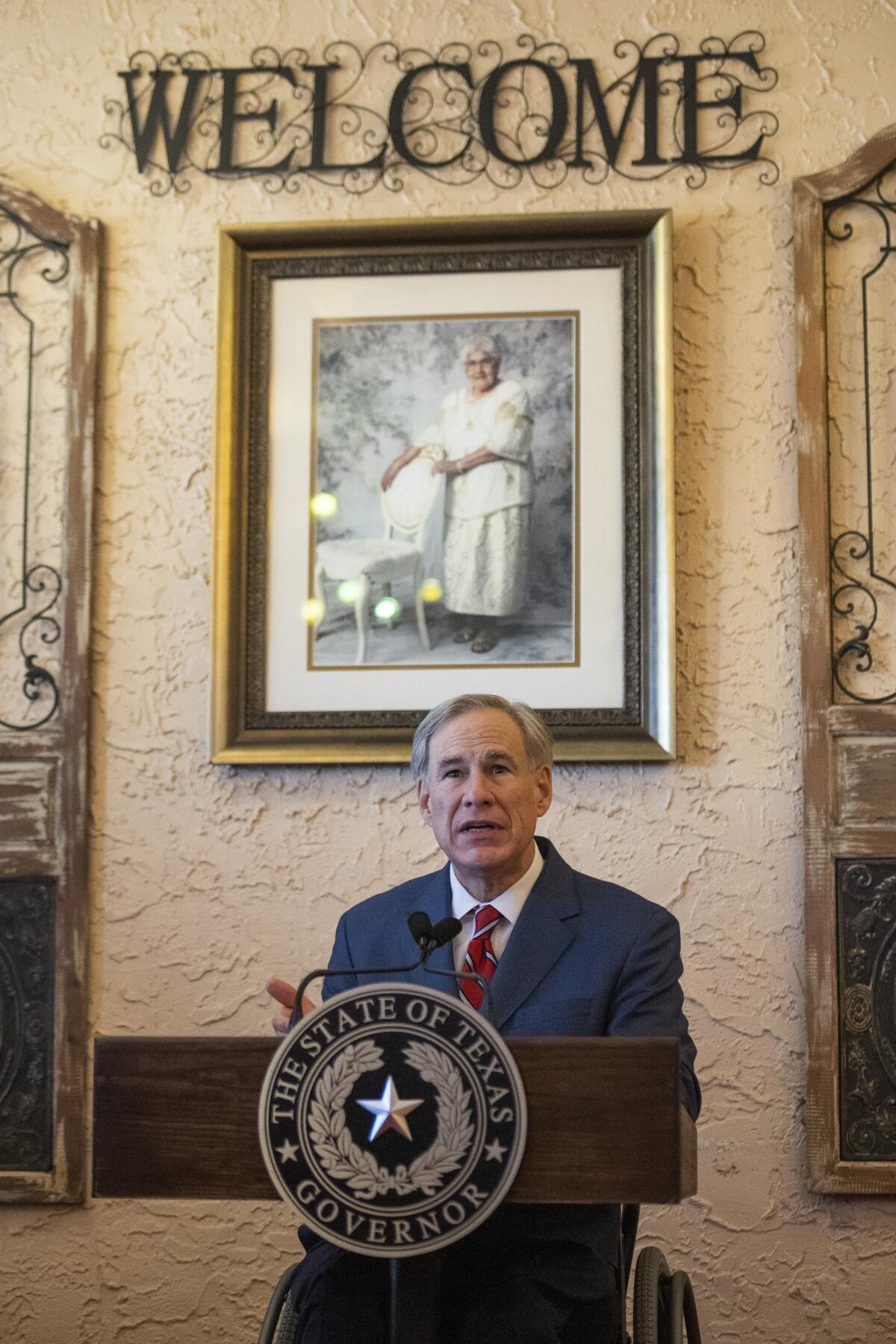
Prashant Yadav, a senior fellow at the Center for Global Development who focuses on healthcare supply chains, said that’s unusual given the sensitive scientific information that must be shared.
“Anyone in this industry would say it’s not impossible, but usually it’s something we would consider to be rather unprecedented,” he said.
John Grabenstein, the former global executive director of medical affairs for vaccines at Merck, said getting the company’s facilities ready to produce more doses is a complicated process.
“It’s not like, ‘Can I borrow your car keys?’ or ‘Can I borrow your oven for the bake sale?’” he said in an interview. “These are highly sophisticated, highly intricate activities.”
For example, Merck’s equipment will need to be thoroughly cleaned and inspected before Johnson & Johnson’s vaccine can be formulated.
Biden cautioned the country that “this fight is far from over” and he urged Americans to keep following guidelines on wearing masks and social distancing. His comments came shortly after Texas Gov. Greg Abbott announced that he was lifting his state’s mandate on wearing masks and allowing businesses and restaurants to return to full capacity.
“Texas now has the tools to protect Texans from the virus,” Abbott said. “We must now do more to restore livelihoods and normalcy for Texans by opening Texas 100%.”
The decision ran counter to a recent warning from Rochelle Walensky, head of the Centers for Disease Control and Prevention, that the nationwide decline in COVID-19 caseloads appeared to be stalling. The country has averaged 50,000 people hospitalized and nearly 2,000 deaths per day in the last week.
“At this level of cases, with variants spreading, we stand to completely lose the hard-earned ground we have gained,” Walensky said. “These variants are a very real threat to our people and our progress.”
Staff writer David Lauter contributed to this report.
More to Read
Get the L.A. Times Politics newsletter
Deeply reported insights into legislation, politics and policy from Sacramento, Washington and beyond. In your inbox three times per week.
You may occasionally receive promotional content from the Los Angeles Times.
